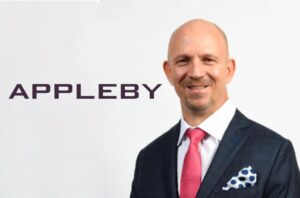Why financing your brokerage ownership aspirations should come last, not first

Financing is usually the last piece of the brokerage ownership puzzle, suggests one P&C financial advisor, even though 57% of young brokers see financing as their biggest obstacle to ownership, according to Canadian Underwriter survey results.
Broker entrepreneurs should ensure they are building relationships with investors and creating a business plan before they stress about financing, suggests Alex Wong, partner at Smythe LLP, during CU‘s LinkedIn Live presentation, ‘How to become a young brokerage owner.’
Brokerages are seeing “sky-high” valuations, a sign insurance is a stable industry financially, Wong says. “There is a lot of financial reward for owners and investors.” But those valuations may have young brokers thinking they can’t finance brokerage ownership.
“As much as there’s a concern [from entrepreneurs] about that ability to finance — because of where the prices are — the prices are that way because a lot of investors are looking to put their money into the industry,” he said. “Whether it’s behind a larger consolidator, or whether it’s banks or insurers or other people looking to finance entrepreneurs to get started, there is a lot of opportunity [for entrepreneurs].”
Young entrepreneurs worried now about financing may be at risk of putting the cart before the horse, Wong suggests. Instead, they should put one foot in front of the other by building relationships with investors and insurers first.
“When you’re trying to find financing…you’re relying on an investor — whether it’s the bank, whether it’s an insurer, whether it’s just friends and family — with money,” said Wong. “They’re all investing in you as a person. They have to believe you can pull off what you say you’re going to try to achieve.
“They’re giving you money — whether it’s an equity investment, whether it’s a loan — and they want to get paid back, so there has to be a financial reward at the end of the day.”
Part of building a relationship with an investor means having a good track record as a broker, says Wong. But it also includes having a good track record on the business side of things.
Related: Did you miss “How to become a young brokerage owner” on LinkedIn Live? Register to watch it here on demand.
After buddying up with investors, the next task for aspiring owners is to create a solid business plan.
“Once you get over that part, once you [find an investor] who believes in you as an individual, then it really comes down to, ‘What’s your business plan? What are you trying to achieve?” he said. “It’s not just how to find clients. It’s [about] how you are going to convert those clients into profits.
“If you have a track record of attracting new clients, if you have a track record of working with insurers to place special business and you’ve proven that you can do it, investors will have a lot more faith that you can pull it off going forward,” he adds.
“You have to have that business plan in place, you have to have the operations right. You have to have the customer relationships and insurer relationships in the first place,” Wong says. “Focus on the business first, and then you have a better chance to solve that financing piece.”
Feature image by iStock.com/PeopleImages



